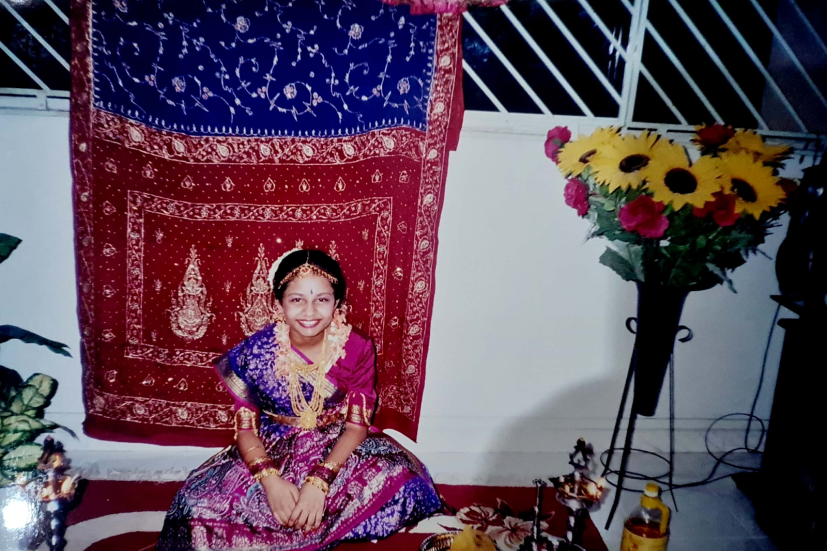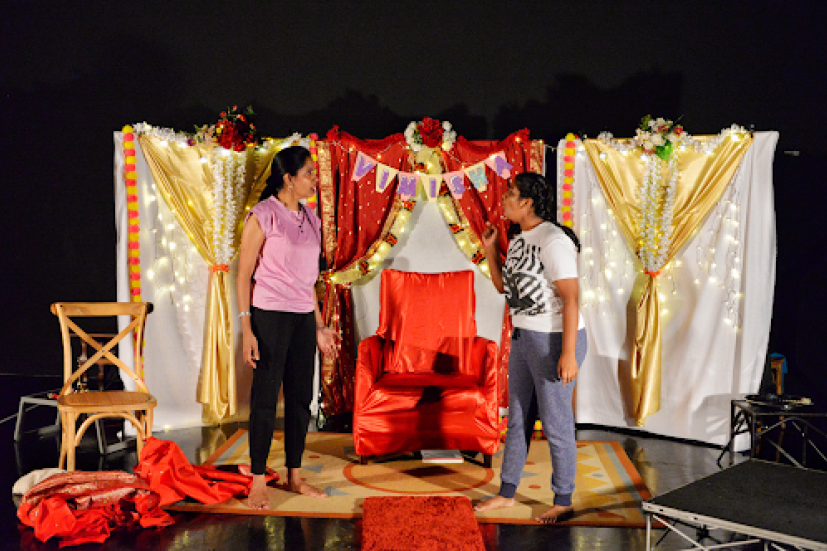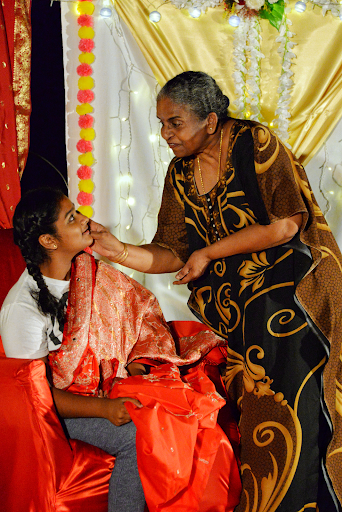On Period Shame
Sutho-illae; unclean.
This is a term used by people in my Tamil community to describe a girl or a woman on her period. For the longest time, I believed that I was in a state of dirtiness whenever I have my period. And the “dirtiness” was not just a physical attribute but a moral one that rendered me “impure”. This meant I was barred from temples, banned from consuming preserved food that can be easily contaminated and considered a prey for spirits that might follow me home. Taboo beliefs like these were further enforced during my menarche at the age of 10 when my mother confined me to my room and did not allow me to go to school as I might “dirty” wherever I went. I remember tiptoeing past my father that night. He was seated on the couch with his head hung low as if brooding over something I had done wrong. That was my first brush with period shame.
Like a cursed mirror, period shame reflected my darkest insecurities, teaching me to feel embarrassed of my own body and to fear the power it held in robbing me of my normality. No matter how hard my mother and helper tried to explain that I had become a “big girl,” nothing quite made sense to me. What was it with these code words, with this pervading silence around a basic biological function? Somehow, both women could not bring themselves to articulate the mechanics of the menstrual cycle or that of the female reproductive system. My mother lamented that I was too young and assured to tell me when I got older.
She never did.
What came easier for my family was to organise a puberty ceremony or a sadangu. Adopted predominantly by the South Indian community, the sadangu is a rite of passage for any young lady transitioning to the next phase of her life. Relatives were invited to conduct rituals that would bless me. Some gave me presents, saying “Congratulations”. How was it that something deemed “dirty” could suddenly spark a celebratory occasion? It was having to grapple with these contradictions that prompted me to write a play exploring period taboos within the Indian community.

Titled ‘Strawberry Girls,’ the play depicts the night before the sadangu where a family of women contemplate over whether they should proceed with the ceremony or not. Twelve-year-old Vimisha (played by Sanchala Sanju) has just hit puberty and wants to go to school while her mother and grandmother (played by Aiswarya Nair and Padma Sagaram) squabble over their conflicting views.
I was particularly interested in examining how intergenerational trauma impacts these women given how many of these cultural practices are adopted without much understanding. Each time young Vimisha questions a custom, her mother and grandmother are prodded to justify their instructions to her. While her mother uses scientific knowledge to make sense of some rituals, her grandmother finally realises she has been a blind follower of patriarchal beliefs that have excluded women from places of worship and residency and treated them as outcasts. How can the younger generation then redeem a lineage of women who have long been disempowered? Perhaps it can begin by demystifying the idea of being “unclean” and unabashedly calling a reproductive process what it is – “menstruation”. That is how Vimisha sees she can be an agent of change.

The sold-out show provided an entry point for intercultural exchanges across different communities: A Japanese audience member related to the themes of shame and silence, referring to the quiet practice of preparing red bean rice to subtly alert the family that a girl has come-of-age. An Indian-Muslim friend shared that boys in his community are considered “unclean” if they are not circumcised. A Chinese friend commented on her frustration when she was banned from the temple while menstruating. A Malay-Muslim audience member reflected on how girls on their periods are not allowed to pray or fast as they are considered “impure". These open conversations allowed me to understand why diversity in narratives matters, not only to capture the uniqueness in each community, but also for us all to bond over our universal human experiences.

Psychology professor and one of my favourite writers, Brene Brown, says that “Shame derives its power from being unspeakable”. In writing Strawberry Girls, I have begun to scrape through the unspeakable and unpack personal traumas associated with period shame. However, changing traditional mindsets rooted over centuries is an onerous task. As a society, what small steps can we take to destigmatise periods? How can we better support our daughters and mothers experiencing periods? These are questions we should continue to ask in our struggle against period shame.





